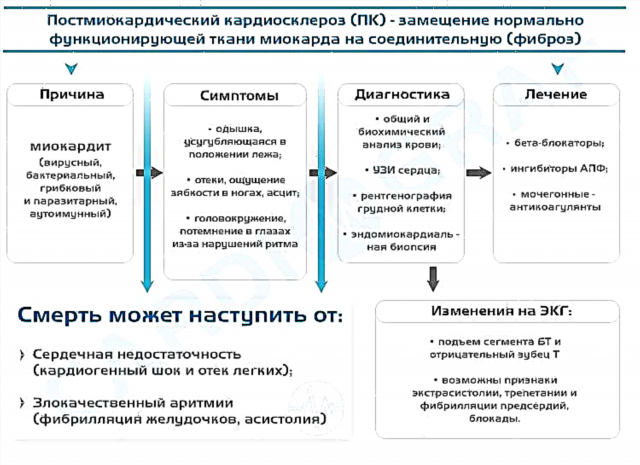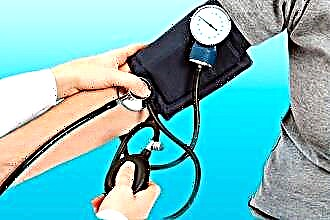The accumulation of fluid in the intracranial cavity due to increased vascular permeability, toxic damage often leads to the death of the patient.
In order to eliminate edema and remove excess fluid from the body in clinical practice, diuretics are used - diuretics. Depending on the mechanism of action, the effect on electrolyte metabolism and the severity of the effect, the classes presented in the table are distinguished:
| Pharmacological group | Mechanism of action | Representatives | Average daily dose |
|---|---|---|---|
| Loopback | Reduces reabsorption (reabsorption of fluid) from the lumen of the renal tubules Pronounced diuretic effect | "Furosemide" | Up to 1500 mg |
| "Torasemid" | 10-40 mg | ||
| Thiazide and thiazide-like | Blocks sodium and water reabsorption in the distal nephron tubules | "Hydrochlorothiazide" | 25-100 mg |
| "Indapamide" | 2.5-5 mg | ||
| Aldosterone antagonists | Reduce the activity of the renin-aldosterone-angiotensin system (RAAS). Moderate diuretic effect | "Spironolactone" | 25-200 mg |
| Eplerenone | 25-50 mg | ||
| Carbonic anhydrase inhibitors | Moderate diuretic effect | "Acetazolamide" | 250-1000 mg |
The drugs are used as an adjuvant therapy for arterial hypertension, to eliminate signs of ophthalmic pathology, to stabilize the condition of endocrinological patients.
For emergency treatment, loop diuretics are used with a rapid and pronounced effect, which are released in the form of a solution for intravenous injection.
Treatment of pain attacks and shortness of breath
The most common complaint of cardiological hospital patients is chest pain that occurs after physical exertion ("angina pectoris", angina pectoris). Such patients often have “first aid” medicines in the pockets of their handbags, jackets and jackets to stop the attack, which is accompanied by pressing pain and fear of death.
The onset of the symptom is associated with impaired blood flow in the coronary arteries, lack of oxygen in the heart muscle. Pharmacological classification of drugs that are used to relieve and prevent angina attacks:
- nitrates - peripheral vasodilators - means that expand the lumen of blood vessels, improve blood flow in the coronary arteries. Reduce preload on the heart by depositing blood in the venous system. Fast and pronounced effect. The most common adverse reaction is headache:
- "Nitroglycerin" - 0.5 mg (single dose);
- "Nitrosorbide" - 20 mg;
- "Trinitrolong" (long-acting form of release, used for the prevention of seizures) - 2-4 mg;
- inhibitors of IF channels. The antianginal effect is due to a decrease in the frequency and strength of heart contractions, an improvement in coronary blood flow:
- "Ivabradine" - 10-15 mg / day;
- potassium channel activators that dilate the great and peripheral arterial vessels:
- Nicorandil - 40 mg / day;
- metabolic agents that increase myocardial resistance to hypoxia (during physical activity), improve the delivery of oxygen and nutrients to muscle fibers and the brain:
- "Trimetazidine" ("Preductal") - switches metabolism to the consumption of glucose, and not fatty acids, preserving the supply of ATP - energy molecules. The only evidence-based tool;
- "Ranolazine" is a blocker of sodium channels that are activated during tissue ischemia. Reduces signs of hypoxia, prevents the development of a heart attack.
Nitrate preparations are considered the most used for first aid for angina pectoris. With severe headache, Nitroglycerin is prescribed together with Validol (distracting effect, reducing the intensity of the symptom). The recommended substitute is Molsidomin with a similar therapeutic effect. A single dose of 2-8 mg.
Discomfort behind the sternum is not always associated with impaired blood flow in the coronary arteries. List of possible etiological factors for heart pain:
- Myocarditis, pericarditis - nonspecific inflammation of muscle fibers or the wall of the pericardial sac (often two to three weeks after angina). Treatment consists of using anti-inflammatory, antibacterial and antiviral agents.
- Dyshormonal cardiomyopathy (with pathology of the thyroid gland, ovaries) - requires consultation with an endocrinologist.
- Ventricular myocardial hypertrophy (eg in athletes): the greater the muscle mass, the greater the oxygen consumption.
- Neurocirculatory - dystonia and neuroses caused by dysfunction of the peripheral nervous system. In therapy use "Validol", "Corvalol", "Glycine".
- Osteochondrosis of the cervical and thoracic spine.
- Diseases of the gastrointestinal tract (eg, peptic ulcer) that mimic cardiovascular pathologies.
Elimination of pain in such cases requires a comprehensive diagnosis and selection of etiotropic and pathogenetic treatment.
The main symptom of cardiac muscle dysfunction is considered to be shortness of breath, the intensity of which determines the severity of the patient's condition. In cardiovascular pathology, regular medication reduces the severity of shortness of breath, chest pain and edema.
Heart rate control
Pulse is one of the key characteristics of the cardiovascular system, which reflects the efficiency of the pumping function and the adequacy of hemodynamics in the peripheral arteries.
During an objective examination, the doctor assesses:
- Symmetry - a mismatch on the left and right hand indicates structural anomalies (blood clots, plaques, occlusions) that require surgical intervention.
- Rhythm - disorders are corrected with antiarrhythmic drugs.
- Frequency (norm 60-80 / minute). The number of beats is corrected with the help of BAB, BMKK (with a rapid heartbeat). Rare pulse (less than 40) - bradycardia requires an artificial pacemaker.
- Voltage is determined by the state of the arterial wall. A hard pulse is characteristic of hypertension, a soft pulse - in case of hemodynamic insufficiency. For the treatment of the latter, adaptogens are used - "Schisandra extract", "Echinacea tincture".
The phenomenon of "pulse deficit" (the number of heartbeats does not coincide with the oscillations of the walls of the peripheral artery) is characteristic of atrial fibrillation, in which cardiac glycosides are used.
Blood thinners and cholesterol medications
Normalization of the rheological properties of blood (maintenance of a liquid state) and prevention of blood clots are the main condition for the prevention of IHD complications.
In clinical practice, the following blood-thinning drugs are used for the heart:
- antiplatelet agents - reduce the ability of platelets to stick together and with the artery wall:
- "Acetylsalicylic acid" ("Aspirin") - 75-150 mg / day;
- "Clopidogrel" - 75-325 mg / day;
- "Ticagreol" ("Brilinta") - 90 mg / day;
- anticoagulants - prevent the formation of a blood clot through the blockade of plasma enzymes:
- Rivaroxaban (Xarelto) - 20-30 mg / day;
- "Warfarin" - 2-6 mg / day (under the control of a coagulogram - weekly).
Alcohol potentiates the action of oral anticoagulants. To prevent sudden bleeding, the use of alcoholic beverages during treatment is not recommended.
Violation of lipid metabolism with an increase in total cholesterol, lipoprotein imbalance is one of the risk factors for atherosclerosis (with systemic vascular lesions), hypertension and coronary artery disease.
Drugs that are used to correct disorders of fat metabolism:
- inhibitors of HMG-CoA reductase (statins) - inhibiting the synthesis of endogenous cholesterol: Simvastatin, Rosuvastatin, Atorvastatin, Pravastatin;
- sequestrants of bile acids - accelerate the metabolism and utilization of fats: "Questran", "Cholestyramine";
- nicotinic acid - inhibits lipolysis: "Niacin", "Enduracin";
- fibrates - reduce the production of low density lipoproteins (LDL, the most atherogenic): "Fenofibrate", "Gemfibrozil", "Bezafibrate";
- inhibitors of absorption of cholesterol in the intestine: "Ezetimibe", "Esoterol";
- monoclinal antibodies to LDL receptors: "Alirokumab".
Metabolic therapy and meldonium
Metabolic therapy is one of the components of complex treatment, which is aimed at normalizing metabolism in damaged myocardial tissues (after a heart attack).
The main effects of the drugs:
- mediocre expansion of the lumen of the coronary arteries;
- improved blood supply to tissues;
- decreased oxygen demand (during exercise).
The funds enhance the effect of first-line drugs, are intended for a long-term course of use and are characterized by safety for the body (a small number of adverse reactions).
Medicines used to strengthen the myocardium:
- "Thiotriazoline" is a synthetic agent that is used to "protect" liver and heart cells;
- Riboxin is a precursor of ATP;
- "Preductal" (active substance - trimetazidine);
- "Meldonium" ("Mildronate") - accelerates the exchange of fatty acids and carbons, stabilizes energy processes in cardiomyocytes, dilates the coronary arteries and reduces the area of necrosis during ischemia;
- "Cocarboxylase" (vitamin B1 coenzyme) - eliminates hangover symptoms in patients who consume alcoholic beverages;
- "Actovegin" - strengthens the vascular wall, improves the condition of the liver in cirrhosis.
Electrolyte levels play an important role. Potassium and magnesium necessary for heart function are found in dried fruits (raisins, dried apricots, figs).
Metabolic heart pills are most often prescribed during a patient's recovery period. They also use homeopathic remedies, herbal remedies for the treatment of cardiac patients during pregnancy.
Ambulance drugs: what should be at home at the core
The cardiovascular system, like the respiratory system, is considered vital. Acute failure is accompanied by a high risk of mortality in patients. Therefore, there are algorithms for providing emergency care for the development of dysfunctions.
Preparations for "ambulance" at home for heart disease are presented in the table:
| Pathological condition | A drug | Doses |
|---|---|---|
| Acute coronary syndrome | "Nitroglycerine" | 0.5-1 mg every 5-10 minutes under the tongue |
| "Acetylsalicylic acid" | 160-325 mg chew | |
| "Propranolol" (or "Metoprolol" - 25 mg) | 20 mg | |
| Hypertensive crisis | "Clonidine" | 0.075-0.15 mg every hour (maximum dose - 0.6 mg) |
| "Captopril" | 12.5-25.0 mg | |
| "Carvedilol" | 12.5-25.0 mg |
After taking first aid drugs, an immediate call to a doctor with hospitalization is required.
After the arrival of doctors - inform about the measures taken, the presence of allergies to drugs in order to avoid overdose or poisoning.
Preventive remedies
Evaluation of care for cardiovascular diseases is measured by the risk of death, therefore, complex therapy is aimed at preventing acute conditions: myocardial infarction, pulmonary embolism, stroke.
Groups of drugs that prevent cardiovascular disasters:
- statins;
- fibrates;
- antianginal drugs;
- antihypertensive drugs.
Phytopreparations and metabolic agents are used as an auxiliary therapy, which has a mild fortifying effect with a minimum number of side reactions.
Regular use of drugs reduces the risk of death from cardiovascular "events". Stabilization of pathological processes, limitation of foci of fatty infiltration and necrosis are determined on histology.
Conclusions
There is no perfect pill for cardiovascular disease. The role of the system in the human body and the fatality of individual pathologies require timely diagnosis and selection of effective treatment. The groups of drugs that cardiologists use - nitrates, statins, BAB, BMCC - are considered additional agents. The universal cure for the heart is a balanced diet, quitting smoking and alcohol, regular exercise.



